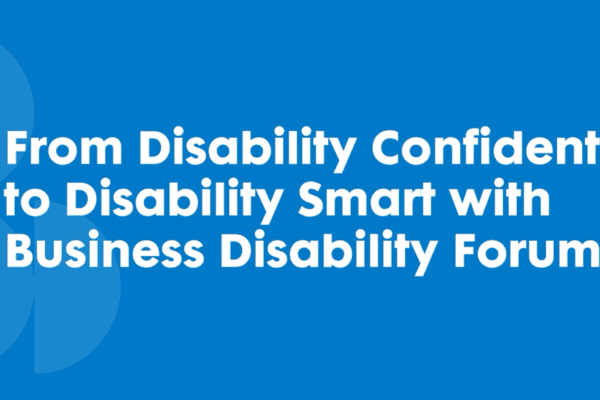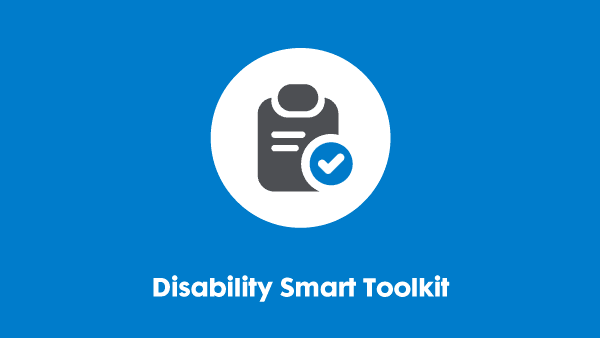Last updated: 18 June 2025
Towards a Disability-Smart World: Global Disability Inclusion Strategy report
Introduction
In 2020, Business Disability Forum conducted a research project – kindly sponsored by Shell – to explore the levels of commitment and activity in developing disability inclusion amongst large global organisations, and the challenges associated with this.
Summary

Current context
- 23% of respondents said their organisations were resourcing a global disability strategy at the time of the survey and another 57% were considering or starting to embed.
- 91% agreed that identifying a senior global disability champion as early as possible was essential to the success of a global disability inclusion programme.
Motivation and consistency
Disability inclusion is the right thing to do
- 96% agreed this motivation was important in their organisation (76% stated it was very important).
- 50% agreed this was an important motivator in all or most locations they operated in, 42% in some locations.
Disability inclusion supports achieving our business objectives
- 84% agreed this motivation was important in their organisation (56% stated it was very important).
- 31% agreed this was an important motivator in all or most locations they operated in, 52% in some locations.
Key learnings
It is important to allow countries to adapt processes and standards related to disability inclusion in their own way
- 84% agreed with this statement (43% agreed strongly).
Learning from previous work in other areas of diversity e.g. gender has been useful in shaping our global approach to disability inclusion
- 73% agreed with this statement (24% agreed strongly).
Base: Online survey all respondents considering/active in a global strategy and answering the question (70).
Methodology
We conducted qualitative interviews and issued an online survey to our Membership. As a result, we gathered feedback from over 120 senior professionals.
Current context and overarching themes
A majority of global organisations taking part in the online survey were considering or evolving and embedding a global disability inclusion strategy. At the time of writing the report, a minority were active, engaged and fully resourcing theirs (23 per cent).
Participants shared some lessons they had learned and a number of common themes developed:
- Developing a global disability inclusion strategy needs a sustained approach: do not underestimate the time it may take and celebrate all the steps you take in between
- Focus on your intentions and not perfection: the complexity of this task can be overwhelming, so it is important to have realistic expectations and not let the scale of the task mean doing nothing at all
- There are many potential catalysts for change: participants often noted they needed a number of ‘allies’ and often worked hard on developing and aligning ‘inclusion incentives’ (e.g. connecting to core values and central business objectives) at both local and central levels.
- Seek the support of senior leaders at the earliest opportunity, this will help accelerate engagement and collaboration at a faster pace.
- Don’t work in isolation: build on successful efforts already underway in other strands of inclusion. Collaborate with colleagues and network with those outside your organisation. Many are willing to share experiences.
The research demonstrated that whilst a minority of global organisations are resourcing a global disability inclusion strategy, a majority estimated it would happen in the next few years.
- 23% of respondents said their organisations were resourcing a global disability strategy at the time of the survey and another
- 57% were considering or starting to embed.
The research highlighted that senior leadership commitment and local collaboration are key to maximising engagement.
- 91% agreed that identifying a senior global disability champion as early as possible was essential to the success of a global disability inclusion programme.
You can download the current context and overarching themes below.
Further information
- Download the report from the sidebar of this page.
- View the key challenges identified throughout the research.
- Global Business Disability Framework.
If you require this content in a different format, contact enquiries@businessdisabilityforum.org.uk.
© This resource and the information contained therein are subject to copyright and remain the property of the Business Disability Forum. They are for reference only and must not be copied or distributed without prior permission.

